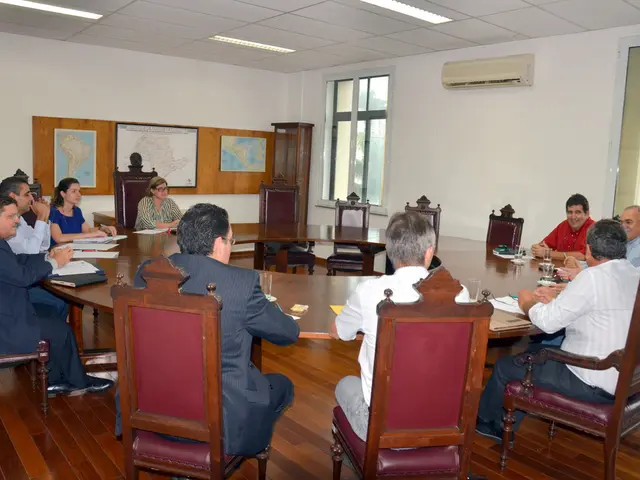Germany Proposes 48-Hour Workweek Limit, Sparking Health Concerns
The German government is proposing to reform the Working Hours Act, suggesting a weekly limit of 48 hours. This move has sparked concern among employee representatives and unions, who warn of potential health risks and disruption to work-life balance.
The reform aims to address the skilled worker shortage and help businesses manage peak orders. However, experts from the Hugo Sinzheimer Institute for Labor Law caution that daily working hours beyond eight can increase stress-related illnesses, strokes, diabetes, and cancer risks.
Employee representatives and unions, such as ver.di, oppose the reform. They fear it could lead to daily working times of up to 13 hours, exacerbating stress and illness risks. This concern is echoed by 73 percent of employees who worry about negative health impacts and daily life organization.
Support for the reform varies among companies. While 50 percent of German companies back the change, approval is higher in large businesses (72 percent) than in small businesses (42 percent). Flexible working hours also seem to influence support, with 60 percent of companies offering flexible hours approving the reform compared to 42 percent with fixed hours.
The reform could offer more flexibility, allowing employees to make up hours worked over 48 in a week on another day.
The planned reform of the Working Hours Act remains contentious. While the government and some businesses see it as a way to address labor shortages and manage peak orders, employee representatives and experts warn of potential health risks. The debate highlights the need for careful consideration of the impact on workers' well-being and daily lives.
Read also:
- FDA's Generic Mifepristone Approval Sparks Pro-Life Concerns Over Safety and States' Rights
- Global Hunger Index 2025: Mark Your Calendars for October 9 Launch
- Top Superfoods for Hormonal Health: Avocados, Berries, Flaxseeds, Turmeric, and Cruciferous Veggies
- Pope Francis' New Book 'Let Us Dream' Offers Unity and Hope for Post-Covid World








